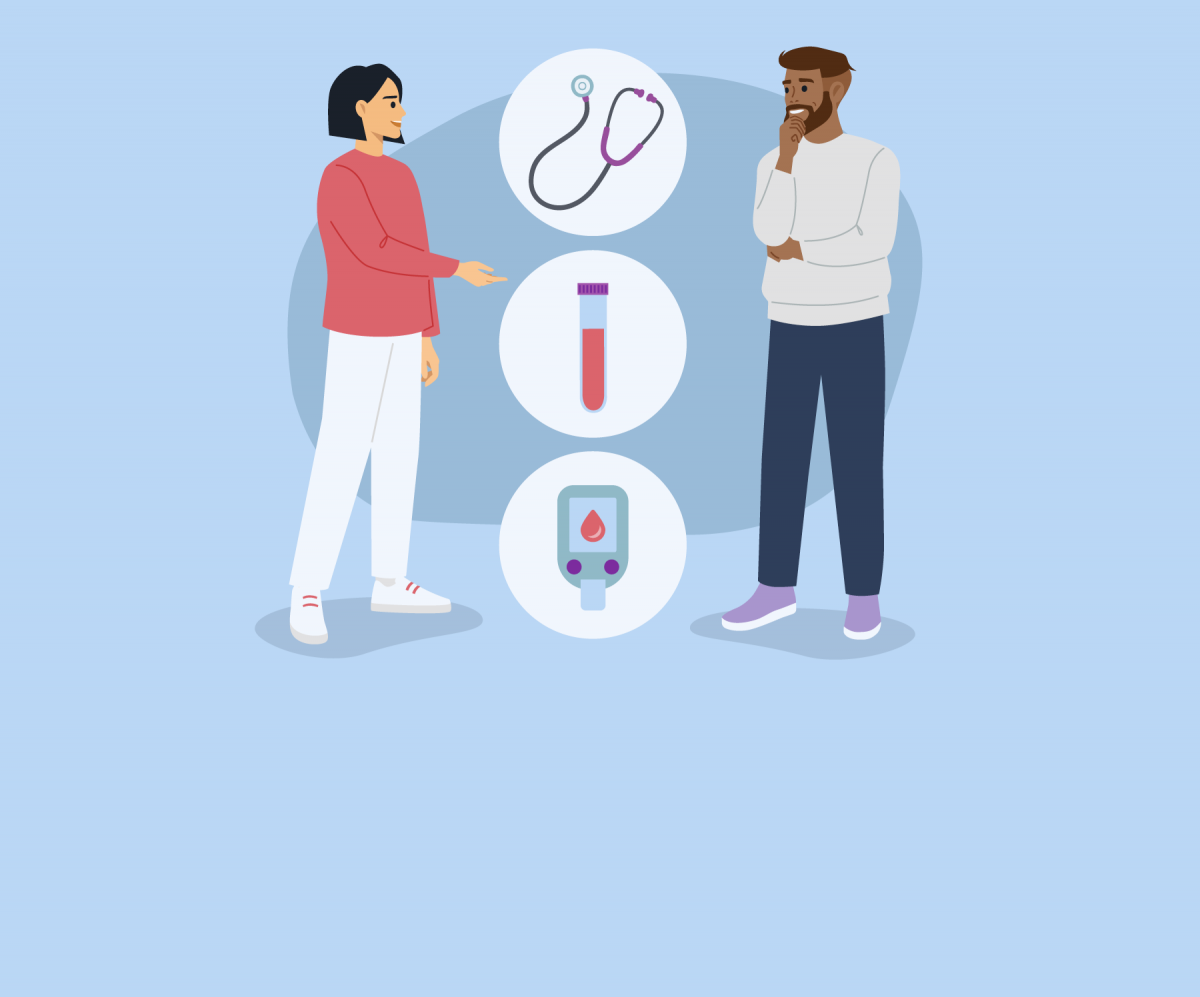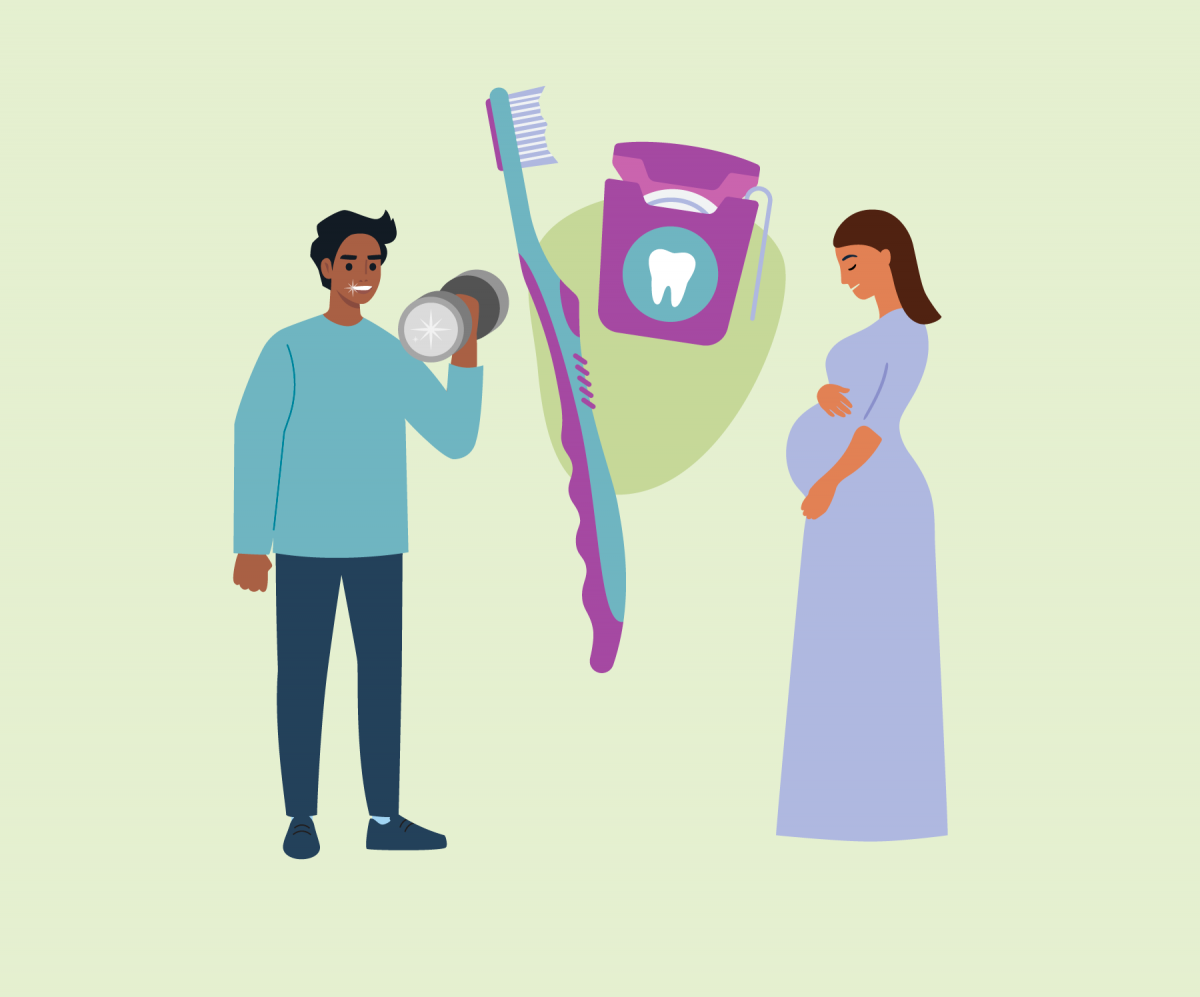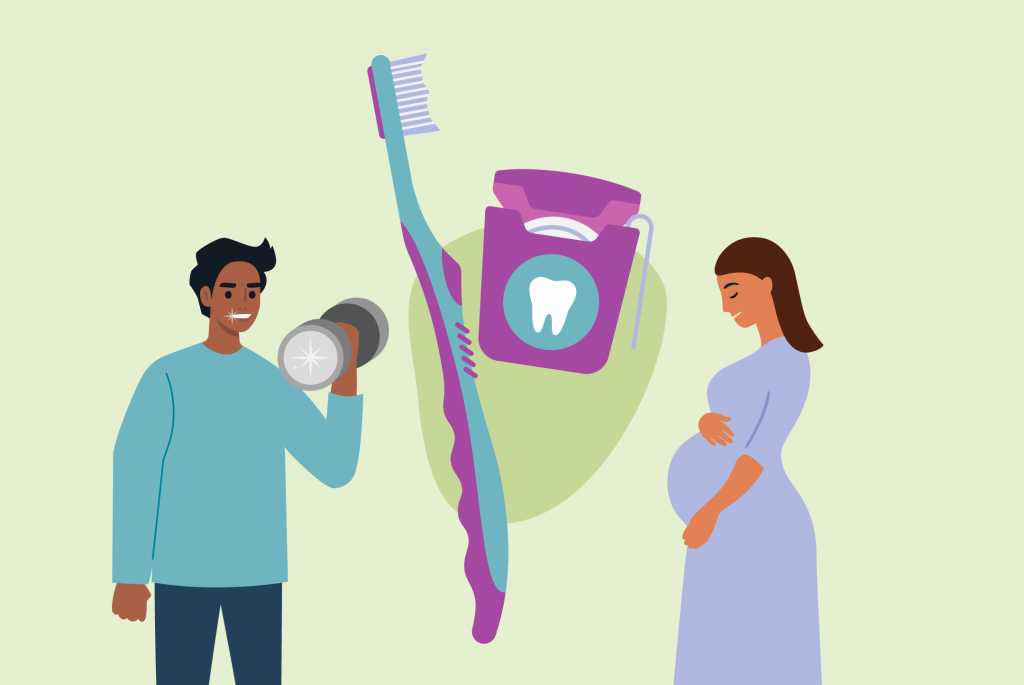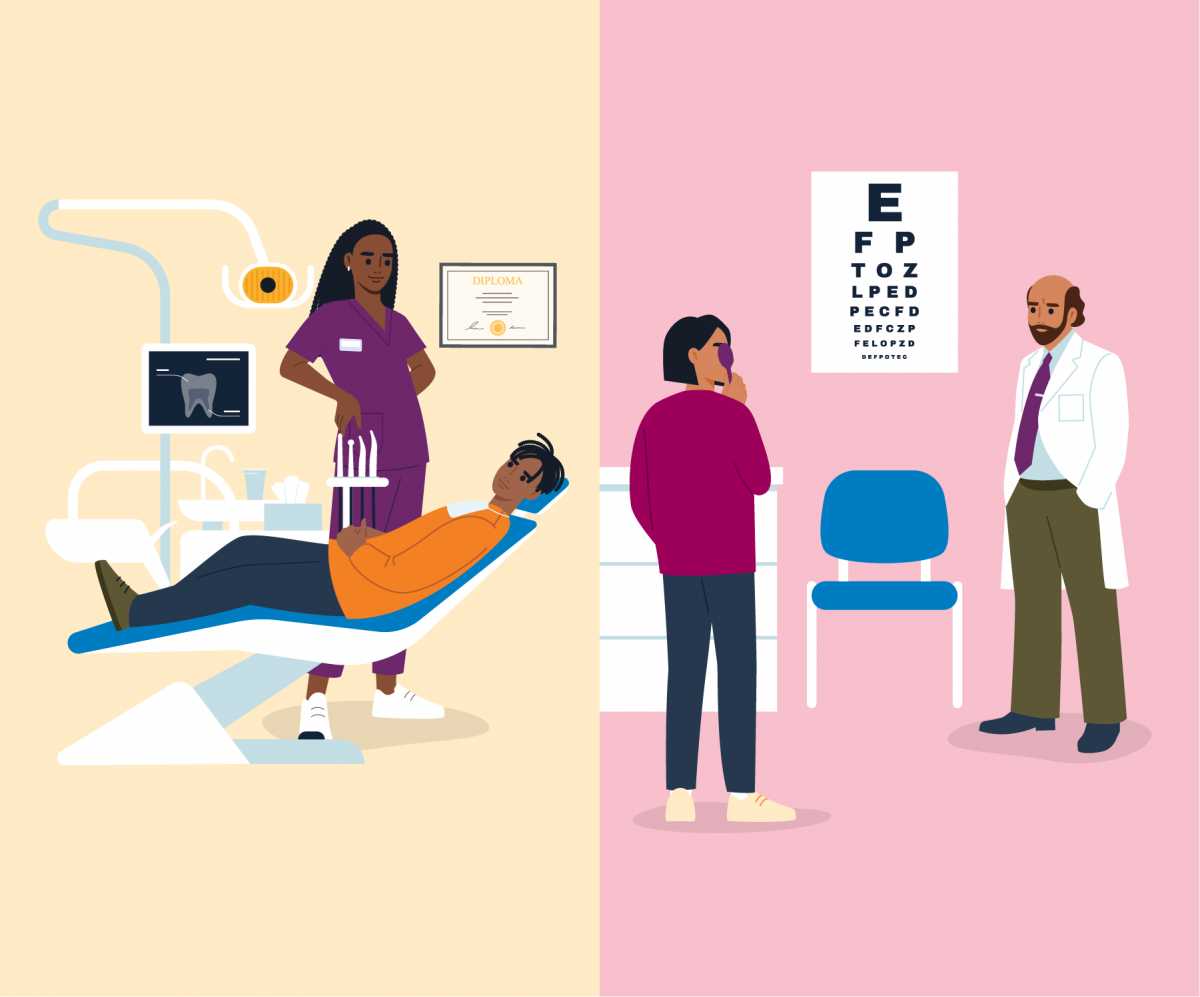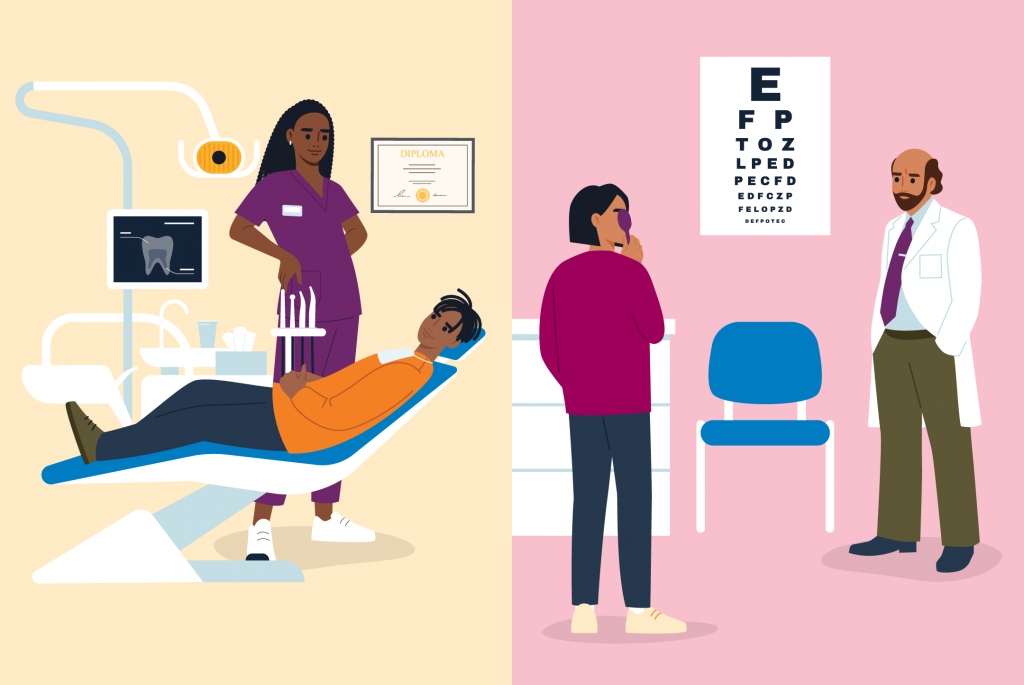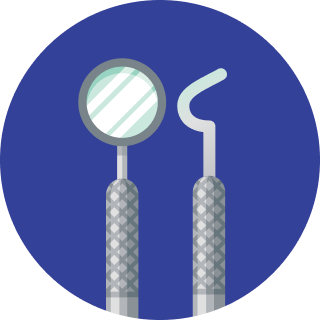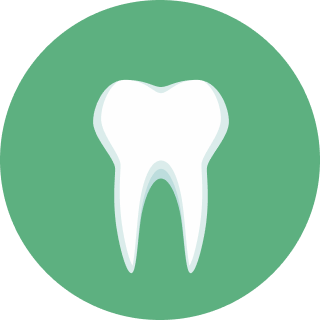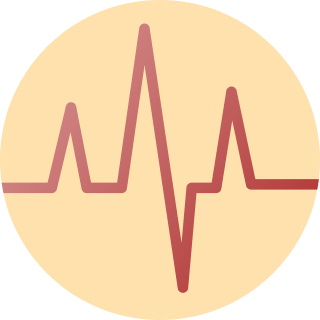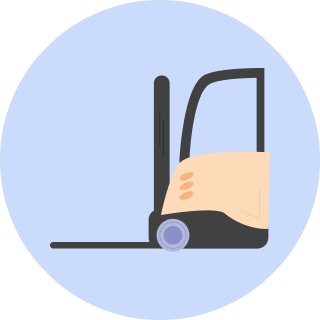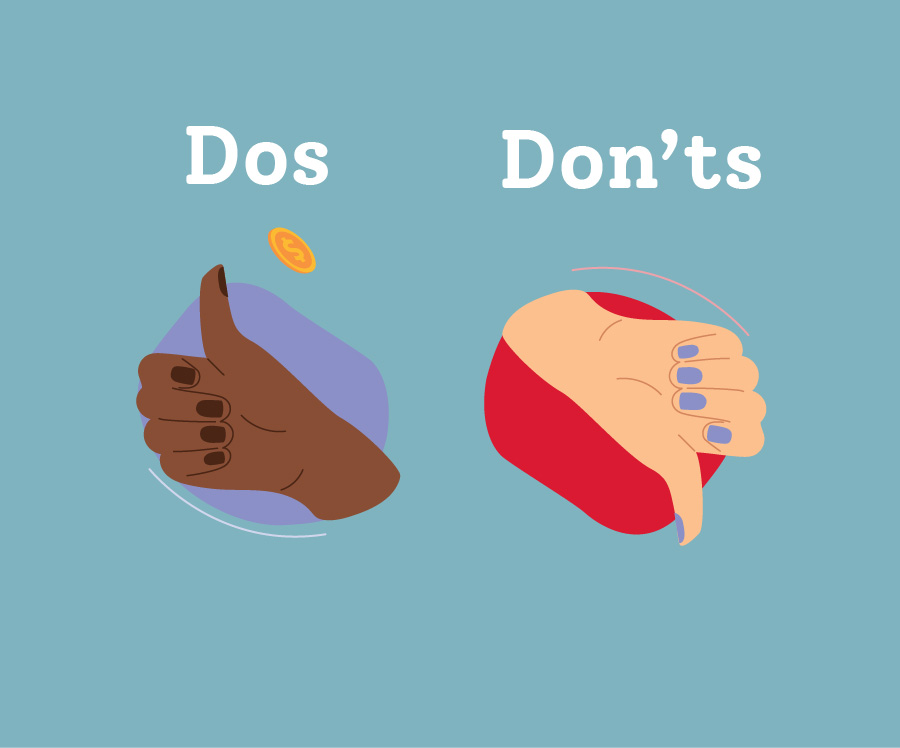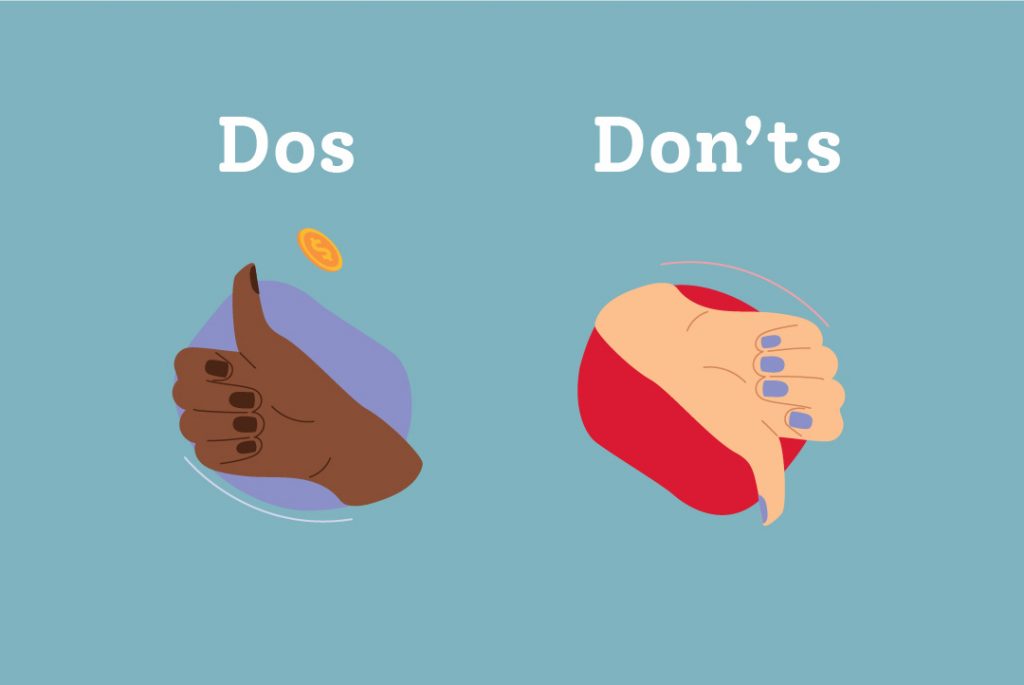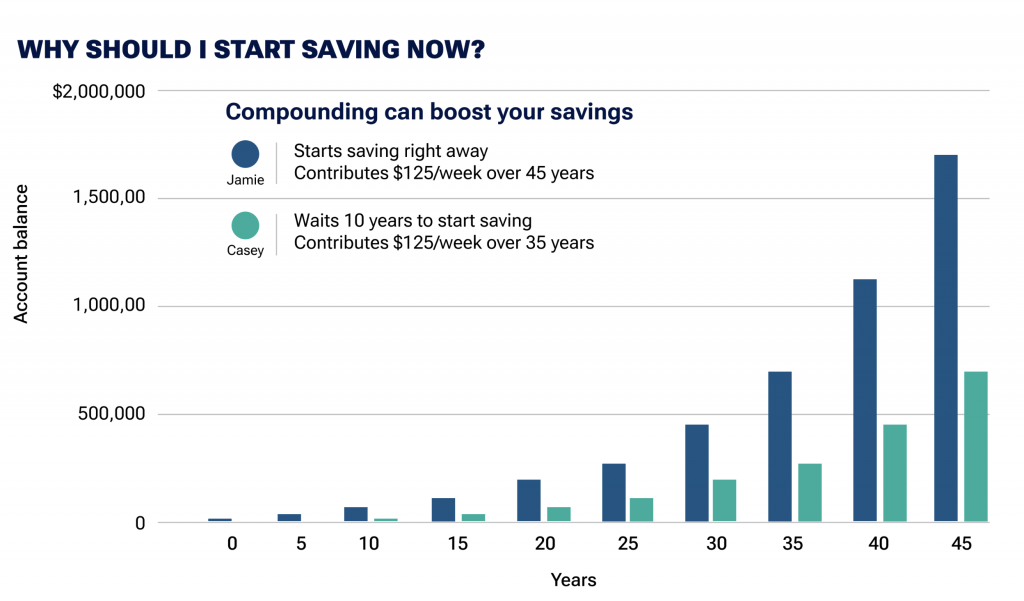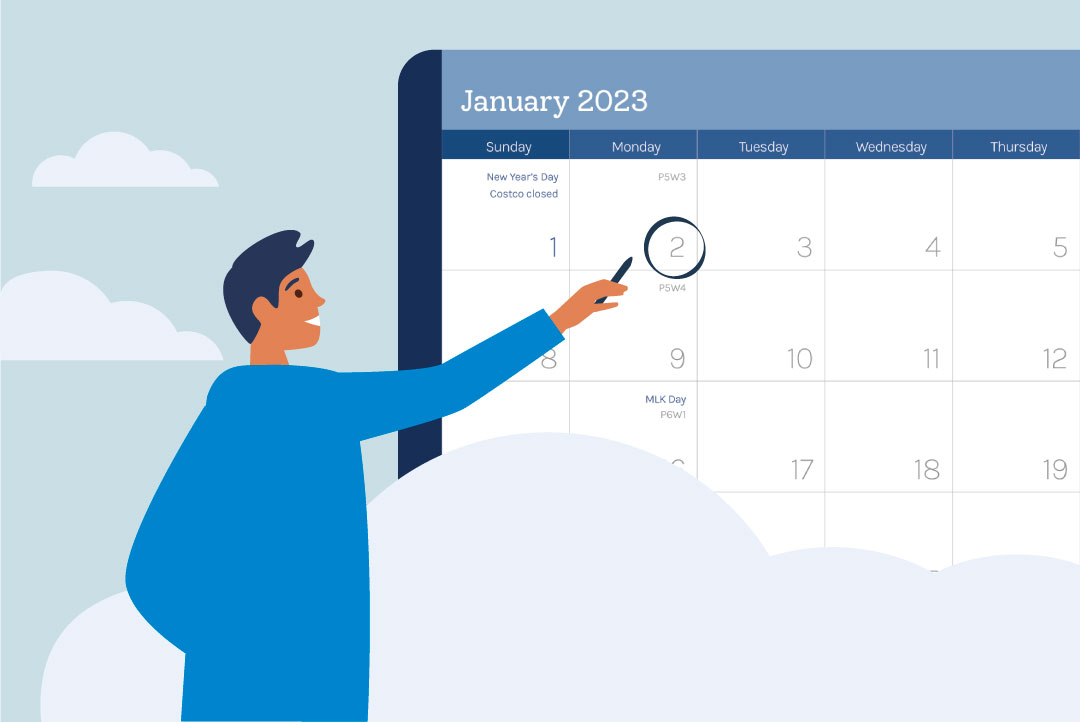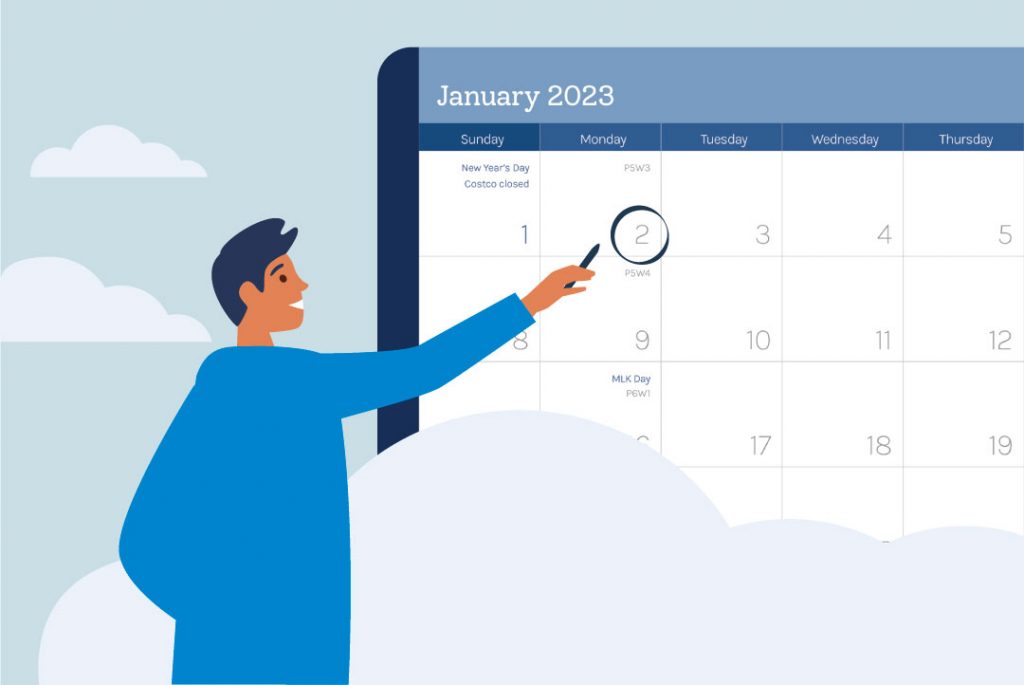
3 MIN READ
FEBRUARY 2025
Catch conditions early when they’re easier to treat
Skin cancer and breast cancer are the two most common cancers among Costco employees. More than 6,000 employees and their family members are dealing with skin cancer. Nearly 1,800 have been diagnosed with breast cancer. Find out how you can catch these conditions early, when treatment is most effective.
Looking for more? Find other articles below
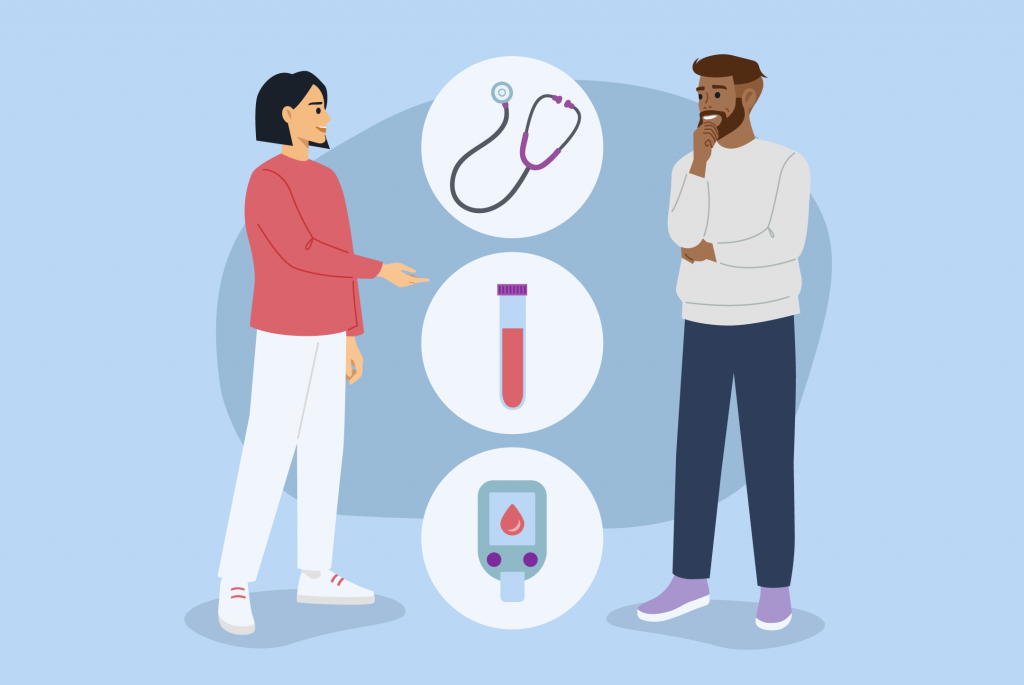
The power of preventive care
Preventive services such as annual physical exams and mammograms are powerful weapons in fighting these cancers. A recent study shows that regular mammograms reduce the risk of dying from breast cancer by 50%.1 Only 21% of Costco employees and family members get all of their recommended preventive services each year. Are you up to date on your preventive care?
Routine preventive care helps you stay ahead of illness and disease so you can be your best. Preventive care includes services such as your annual physical, certain blood tests, cancer screenings and vaccines, even dental cleanings and vision exams. This kind of care helps you and your doctor know how you’re doing. Most importantly, it can catch a health condition in its earliest stages, when it’s easier to treat.
How to find a PCP
Employees and their family members enrolled in a Costco medical plan can find an in-network primary care provider by visiting Costcobenefits.com and clicking “Find a Doctor” under Health & Wellness.
Mainland employees can learn more about how to find the PCP that’s right for them in this Aetna ID card update:
Aetna ID card update for mainland employees
To make it easier for you and your family members enrolled in an Aetna medical plan to access preventive care, your new Aetna ID card will have a PCP listed for you and each family member.
Here are a few other things to know:
- Your plan hasn’t changed. It’s not an HMO. You are not required to see the PCP on your ID card and your plan doesn’t require a referral to see a specialist.
- Your PCP was carefully selected. If you’ve seen a PCP in the last two years, we’ve added the most recent PCP or practice name to your card.
- If you haven’t, we looked for PCPs accepting new patients within 25 miles who have met the Aetna Smart Compare® high standards for care.
- You can change your PCP at any time, and as many times as you need, by calling your Aetna Health Concierge* at 800-814-3543 (TTY: 711).
- If you change your PCP, we’ll send you a new card. Your digital ID card will be available on your Aetna member website the next day.
- Note: If you see a physician’s assistant (PA) or nurse practitioner (NP), you may see the supervising physician’s name or the practice name on your card.
Your PCP is your partner in good health
Your primary care physician (PCP) is your first stop for preventive care. They can give you your annual physical and order blood work, tests and screenings.
Here are some recommended preventive services. Your age, gender, and family and personal medical histories can make a difference in which services you need and when to start them. Ask your doctor what’s right for you.
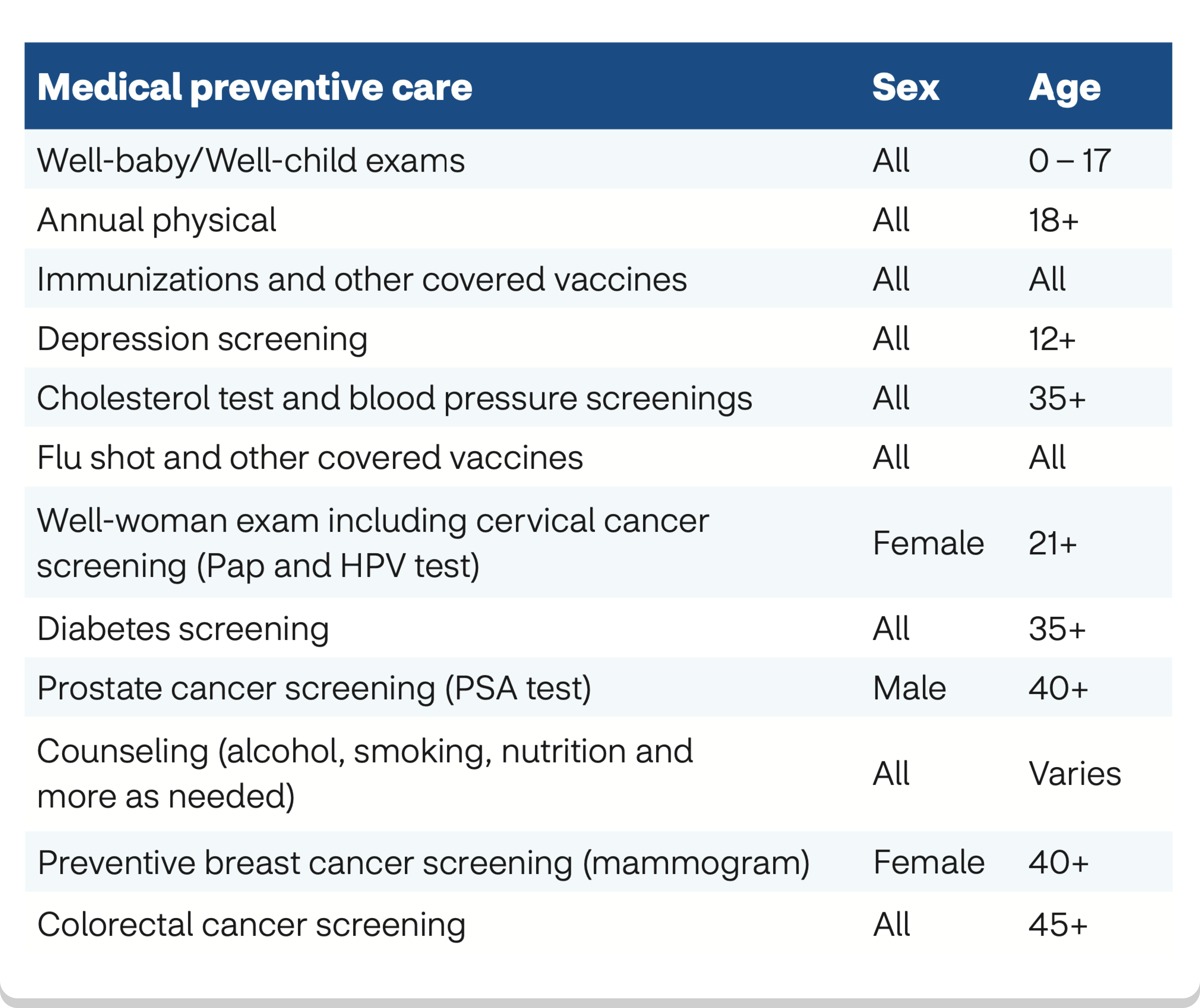
Don’t forget about dental and vision exams
Learn more about what regular dental care can do for you here.
It’s important to get an annual eye exam, even if you have perfect 20/20 vision. Eye exams can help catch brain tumors, cancer, heart disease and more. In 2024, over 100,000 Costco employees and family members got their annual eye exam. Nearly 3,400 discovered a condition they didn’t know about, giving them the opportunity to seek care. The most common conditions were:
- High blood pressure or cholesterol
- Diabetes
- Cataracts
- Glaucoma
Employees and their family members enrolled in a Costco medical plan are automatically enrolled in vision coverage.
The plan will pay:
- Up to $80 for your annual refractive eye exam
- $175 toward the purchase of prescribed eyewear every year (you don’t have to spend it all at once)
You also get $1,750 toward the purchase of prescribed medically necessary hearing aids every four years.
Protect your health by quitting tobacco or nicotine for good
If you use tobacco and/or nicotine, think about making this your year to quit. The Costco Tobacco & Nicotine Cessation Program can provide the support you need with a plan personalized for you. You’ve got so much to gain once you stop smoking, using tobacco or vaping, including:
- A lower risk for heart attack and certain cancers
- Improved blood flow
- Better lung function
- A lower risk for gum disease, tooth loss, dry eye syndrome and cataracts
And that’s just a start. Imagine climbing stairs or playing with the kids and not being out of breath. Even food tastes better! Visit Costcobenefits.com and click “Quit Tobacco” under Health & Wellness to start your journey to quitting for good.
1American Association for Cancer Research. Mammography screening and risk of breast cancer death: a population-based case-control study.
*Available to mainland employees only.


